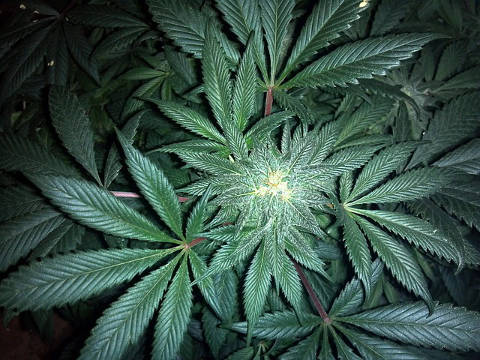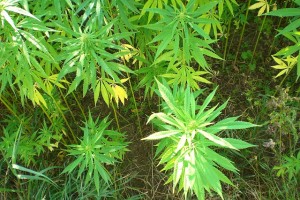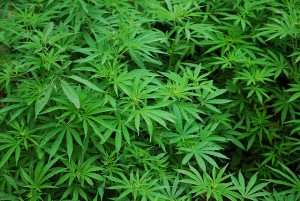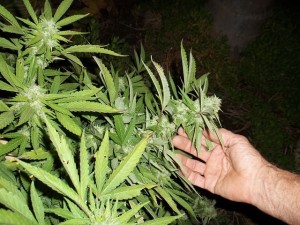The mountain town Hotchkiss, Colorado, consisting of coal miners and organic farmers wasted no time in saying no to marijuana. After Colorado’s vote legalizing marijuana in 2012, local leaders concerned about crime and the character of their tranquil downtown, voted twice to ban the recreational and medical marijuana shops rising up in other towns.
Then the coal started crumbling away. One mine in the North Fork Valley has shut down amid a wave of coal bankruptcies and slowdowns, and another has announced that it will also shutdown. The closings added to a landscape of layoffs and economic woes concussing mining-dependent towns from West Virginia to Wyoming. As Hotchkiss searches for a new economic lifeline, some people are wondering if marijuana can save their town.
If we could get it legalized right now, we could create some jobs, and we need the tax revenue,” said Thomas Wills, a town trustee running a used-book store and supports the initiative. “Downtown’s not going to be all flashing green crosses and dancing marijuana leaves. You can make it as unobtrusive as you want.”
Hotchkiss will vote next month whether to undo its ban and welcome marijuana shops, along with the traffic and taxes that come with it. With cannabis sales rising to almost $1 billion across Colorado, and big states like California determined to legalize it, wary towns like Hotchkiss are looking at the economics of marijuana and starting to reconsider.
Deputy director of the Colorado Municipal League, Kevin Bommer said, It’s an evolving discussion in a lot of communities. Six colorado towns are voting in April on whether to scrap their prohibitions on marijuana stories, and in January another narrowly voted to lift a moratorium and approve wholesale marijuana growers.
Though 23 states and the District of Columbia now allow some forms of recreational and medical marijuana, legalization is still like a checkerboard, with marijuana retailers and cultivations together in big cities such as Seattle or Washington and scattered randomly throughout the rural areas.
As a handful of counties and cities banned marijuana sakes, they cited worries about public safety, property values, youth use and the image problems that might come with becoming their county’s go-to source for legal marijuana. Others passed moratoriums to observe how legalization unfolds in neighboring towns that took the plunge.
Mayor Joel Benson of Buena Vista said, “There were a lot of questions and unknown,” the town in Colorado’s Central mountains allow medical marijuana and is weighing whether to allow recreational sales. “It was really just to give people time to wrestle with the ins and outs.”
Places like Pierce County, south of Seattle, discovered that simply banning dispensaries did not keep out marijuana. In February 2015, the police shut down an illegal grow house located next to a day care center in Gig Harbor. The County Council passed a series of what it called tight regulations, and in December repealed its ban on marijuana sales and production in unincorporated corners of the county.
In Hotchkiss, the push to allow marijuana has touched off conversations about the soul of the town. It is tucked into a sunny mountain draped with peach orchards and vineyards. However, the coal mines up the valley were the economic mainstay for generation and people say that tourism and boutique agriculture cannot replace good-paying mining jobs. The unemployment figure in Delta Country us 5.3% higher than the statewide average of 3.2%
“People have been tightening the belt or just plain moving away,” said Robbie Winne, who runs the Rose, a secondhand clothing shop along Hotchkiss’s main street. She said she supported the marijuana plan as a way to entice more visitors, or at least get some extra traffic as people passed through on their way to ski towns.
MS. Winne said that although pot was no panacea, at least it could boost business and tax revenue. The state of Colorado collected about $135 million in taxes and fees from marijuana sales last year, and small governments have taken in millions from local sales taxes. In DeBeque, a tiny town near the Utah border, officials told Colorado Public Radio that they were considering using the tax money from marijuana to start a scholarship fund or repair streets, curbs and gutters.
A coal mine geologist and the mayor of Hotchkiss, Wendell Koontz, said the prices was not worth it. He said he worried about whether the three-person marshal’s office and small town staff could deal with the complications of new marijuana business, and about the reputation of a place that proclaims itself the “Friendliest Town Around”.
““There’s a concern that kind of atmosphere could be lost,” he said. “And once it’s gone, it’s gone.”
Others say it is time for making a bold move. Mary Hockenbery, a new Mexico transplant who runs an eclectic art gallery in an old church, has been a leading voice behind the initiative. She said the coal is not coming bach, and though she and others have tried to spruce up the main street with cosmetic measures like new flower boxes, the town needs more.
“we’re dying,” she said. “This town need an infusion of cash. Anything will help.”



